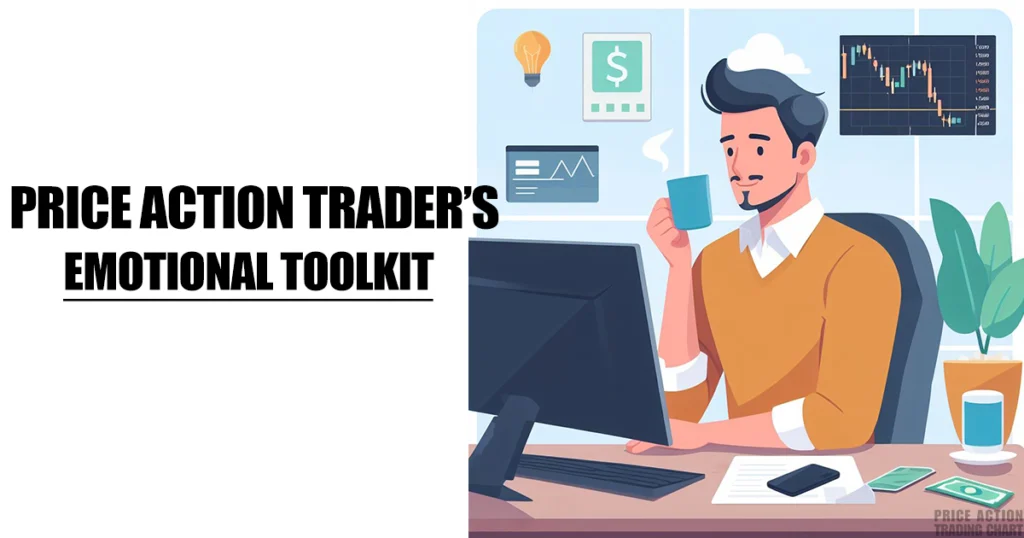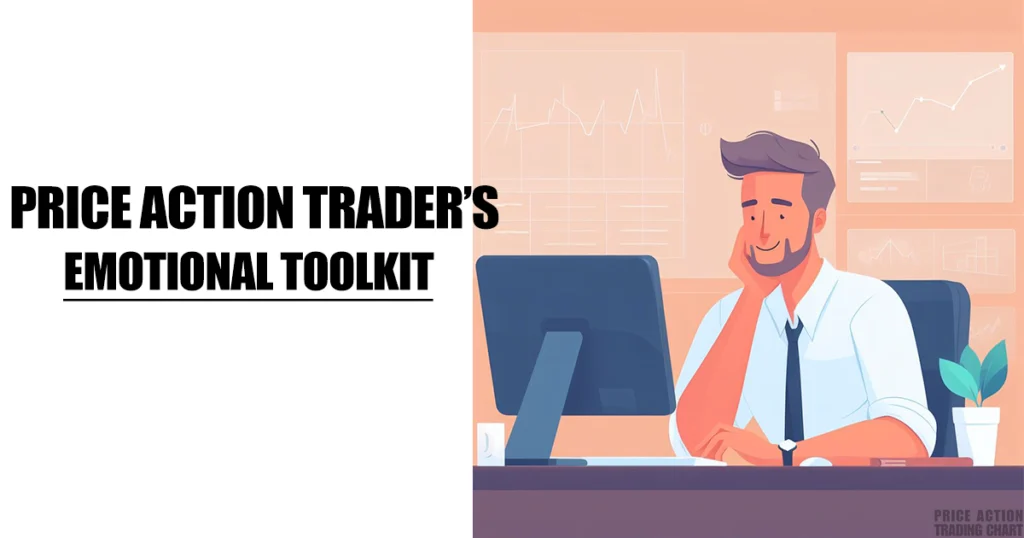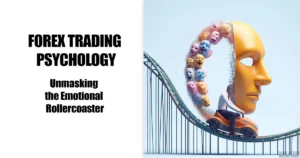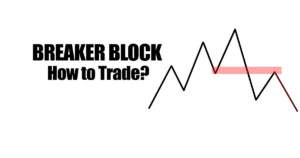TLDR (Too Long Didn’t Read):
| Key Points | Description |
|---|---|
| Price Action Trading Emotional | The skill of managing one’s feelings and emotions while trading with price action, which can affect one’s performance and results. |
| Benefits of Emotional Skill | Emotional skill can help traders improve their confidence, calmness, and success, as well as reduce their stress, anxiety, and frustration. |
| Challenges of Emotional Skill | Emotional skill can be difficult to develop and maintain due to various factors, such as fear, greed, hope, regret, boredom, fatigue, noise, etc. |
| Tips to Improve Emotional Skill | We have shared some tips to improve your emotional skills. |
Have you ever felt stressed, anxious, or frustrated while trading? Have you ever let your emotions get the best of you and affect your trading decisions? If you answered yes to any of these questions, then you are not alone.
Trading is a challenging and rewarding activity that requires not only technical skills, but also emotional skills.
That’s why you need to have a price action trader’s emotional toolkit: a set of tools and techniques that can help you manage your feelings and improve your trading performance.
In this article, I will share with you 20 amazing toolkits that can help you become a more confident, calm, and successful price action trader. Are you ready to discover them? Let’s get started!
Trade what you see, not what you think
Trading what you see, not what you think, is the principle of following the price action of the market, rather than your own opinions, predictions, or biases.
IIt helps you avoid psychological interference, such as fear, greed, hope, or regret, that can cloud your judgment and lead to irrational decisions.
You can trade what you see by using objective criteria to enter and exit trades based on the market structure (support/resistance levels), trend (higher highs/lows or lower highs/lows), momentum (price speed/strength), volume (buying/selling pressure), etc.
Trade less, not more
Trading less, not more, is the practice of reducing the number of trades that you take in a given period of time (day/week/month/year), rather than increasing it.
It helps you avoid overtrading (trading too much or too often), which can result in poor performance, high costs (commissions/spreads), and low returns.
You can trade less by focusing on quality over quantity (taking only high-probability setups), being selective and patient (waiting for the right conditions), and having a clear exit strategy (knowing when to take profits or cut losses).
Create a trading plan and stick to it

A trading plan is a document that outlines your goals, strategies, risk management, and rules for entering and exiting trades. It helps you stay focused, consistent, and accountable.
Having this plan can reduce stress, anxiety, and doubt, as you know exactly what to do in any situation. You can create the plan by defining your trading style, time frame, market, indicators, entry and exit signals, risk-reward ratio, position size, stop loss and take profit levels, etc.
You can stick to your plan by following it strictly and avoiding any deviations or impulses. You can also review and update the plan regularly to reflect your performance and feedback.
Concentration Chronicles contains many tips and examples that will help you understand the topic.
Review your trades regularly
Reviewing your trades is a crucial part of learning and improving as a trader. It helps you identify your strengths and weaknesses, as well as the patterns and behaviors that affect your results. You can use a trading journal or a spreadsheet to record your trades and analyze them objectively.
Reviewing your trades can also boost your confidence and motivation, as you can see your progress and achievements.
Use positive affirmations
Positive affirmations are statements that express your desired outcomes or beliefs in a positive way. They can help you reprogram your subconscious mind and overcome limiting thoughts and beliefs that hold you back.
For example, you can use affirmations like “I am a successful price action trader”, “I trust my analysis and intuition”, “I accept losses as part of the game”, etc. You can repeat them daily, write them down, or listen to them as audio recordings.
Price Action Trading: Where Fear Meets Greed
Make an emotional diary for trading
Analyze your emotional diary for trading. After you have created this diary for your trades, you can use it to analyze your emotional patterns and tendencies.
You can look for correlations between your feelings and your performance, such as how your perceptions affect your entry, exit, risk, and reward decisions. You can also look for areas of improvement, such as how to reduce negative or increase positive feelings.
You can even provide your own statistics on this, such as calculating the average feeling score for each trade, or plotting the attitudes distribution for each trading session.
By analyzing your sentiments diary, you can gain more insight and awareness into your psychology and behavior.
I’m sure you’ll master the topic after reading this: My Best Discipline – Cash at the Charts from the Inside Out.
Practice mindfulness and meditation
Mindfulness is the state of being aware of the present moment, without judgment or attachment. Meditation is a practice that helps you cultivate mindfulness and calm your mind.
Both mindfulness and meditation can help you improve your moods regulation, concentration, decision making, and resilience. They can also help you cope with stress, fear, anger, frustration, and other negative sentiments that can interfere with your trading.
Visualize your success
Visualization is a technique that involves creating mental images of your desired outcomes or scenarios. It can help you activate your creative power and attract what you want into your reality.
For example, you can visualize yourself making profitable trades, reaching your goals, or celebrating your achievements. You can also visualize yourself overcoming challenges, handling difficult situations, or recovering from losses.
Develop a growth mindset
A growth mindset is the belief that you can improve your abilities and skills through effort and learning. It contrasts with a fixed mindset, which is the belief that you are born with certain talents and traits that cannot be changed.
Having a growth mindset can help you embrace challenges, learn from feedback, cope with failure, and persist in the face of obstacles. It can also help you enjoy the process of trading and learning, rather than focusing on the outcome.
Maintaining cheerful flexibility through life’s curves serves far better than stubbornness ever could. Growth is a choice now and every day. Onward!
Set realistic goals and expectations

Goals are the specific outcomes that you want to achieve in your trading career. Expectations are the beliefs that you have about how likely or easy it is to achieve those outcomes.
Setting realistic goals and expectations can help you stay motivated, focused, and confident, as well as avoid disappointment, frustration, and stress.
Celebrate your wins
Celebrating your wins is an important part of rewarding yourself for your hard work and achievements. It helps you acknowledge and appreciate your efforts and results, as well as boost your self-esteem and happiness.
You can celebrate your wins by treating yourself to something that you enjoy, such as a meal, a movie, a gift, or a vacation. You can also share your wins with your friends, family, or other traders, and receive their recognition and praise.
Join a trading community
A trading community is a group of people who share a common interest in trading and exchange ideas, opinions, experiences, and advice.
Joining a community can help you expand your network, learn from others, get support, motivation, and accountability. It can also help you reduce loneliness, isolation, and boredom that can affect some traders.
Learn from your losses
Learning from your losses is an essential part of improving your performance and results. It helps you identify and correct your mistakes, as well as understand and accept the risks and uncertainties of the market.
You can learn from your losses by reviewing them objectively, without blaming yourself or others, and finding the lessons and opportunities that they offer. You can also use your losses as motivation to work harder and smarter, rather than giving up or quitting.
Use a reward system to motivate yourself
A reward system is a method of reinforcing positive behaviors by providing incentives or rewards for achieving certain outcomes or completing certain tasks. It can help you motivate yourself by increasing your satisfaction, enjoyment, and gratification from trades.
You can use a reward system to motivate yourself by setting specific, measurable, achievable, relevant, and time-bound (SMART) goals for your performance and results, and rewarding yourself with something that you value or desire when you reach them.
For example, you can reward yourself with money, gifts, experiences, or recognition when you reach a certain profit level, win rate, or return on investment (ROI).
Manage your risk and money
Risk and money management are the practices of controlling the amount of money that you risk and lose on each trade, as well as the overall exposure of your account.
They help you protect your capital, preserve your profits, and survive in the long run. You can manage your risk and money by using stop losses, position sizing, diversification, and leverage wisely, as well as following a risk-reward ratio that suits your style and goals.
Balance your trading and personal life
Balancing your forex and personal life is the act of maintaining a healthy and harmonious relationship between your activities and your other aspects of life, such as family, friends, hobbies, health, etc.
It helps you avoid burnout, fatigue, and stress, as well as enhance your well-being, happiness, and satisfaction.
You can balance your FX and personal life by setting boundaries, scheduling your time, prioritizing your tasks, delegating or outsourcing some work, and taking breaks and vacations regularly.
Keep learning and improving
Keeping learning and improving is the process of acquiring new knowledge and skills, as well as refining and updating your existing ones, Surviving the Forex Learning Curve A Guide to First-Year Challenges.
It helps you stay ahead of the curve, adapt to changing market conditions, and discover new opportunities and strategies. You can keep learning and improving by reading books, articles, blogs, newsletters, watching videos, webinars, podcasts, attending courses, seminars, workshops, etc.
Develop a trading routine
It is a set of habits and rituals that you perform before, during, and after your trading sessions. It helps you prepare your mind and body, as well as optimize your performance and results. Y
ou can develop a routine by following a consistent schedule, doing some research and analysis, reviewing your plan and journal, practicing some relaxation and visualization techniques, etc.
Use a demo account
A demo account is a simulated account that allows you to practice with virtual money, without risking any real money. It helps you test and improve your skills, strategies, and systems, as well as familiarize yourself with the platform, tools, and indicators. You can use this account before you start using real money, or whenever you want to try something new or different.
Play games to sharpen your trading skills
They are a great way to improve your trading skills. You can learn logic, memory, creativity, problem-solving, decision making, and risk-taking from games.
Choose games that relate to trading or have similar features. You can play games to sharpen your trading skills by choosing games that are relevant to trading or have similar elements or mechanics.
Playing games can also help you relax and enjoy yourself, as well as reduce boredom and stress. It can make trading more fun and rewarding for you.
See Also: What Successful Traders Know And Do That You Don’t
Bonus 1: Trade with a purpose
Trading with a purpose is the act of having a clear and meaningful reason for why you trade, what you trade, and how you trade. It helps you align your activities with your values, passions, and goals, as well as inspire and motivate you to pursue them.
You can engage in this activity with a purpose by defining your vision, mission, and objectives for your career, as well as finding ways to contribute to others or society through your activity.
Bonus 2: Have fun
Having fun is the act of enjoying yourself while engaging in this activity, rather than taking it too seriously or stressfully. It helps you relax and have a positive attitude towards trading, as well as reduce boredom.
You can have fun by doing what you love, experimenting with new ideas, or challenging yourself with different goals. You can also have fun by adding some humor, creativity, or personality to your style, journal, or community.
Having fun can make this activity more enjoyable and rewarding for you.
📌Gain refreshing takes on essential skills in these thoughtful videos. The first one is here, the second one is here.

Brian Miller is a Forex trader who uses price action, a method based on real prices instead of indicators. He learned this technique from hedge fund experts and has been trading full-time since 2011. He has a finance degree and writes about Forex on various websites. On this website, he shows his price action system and how it works in different markets.






